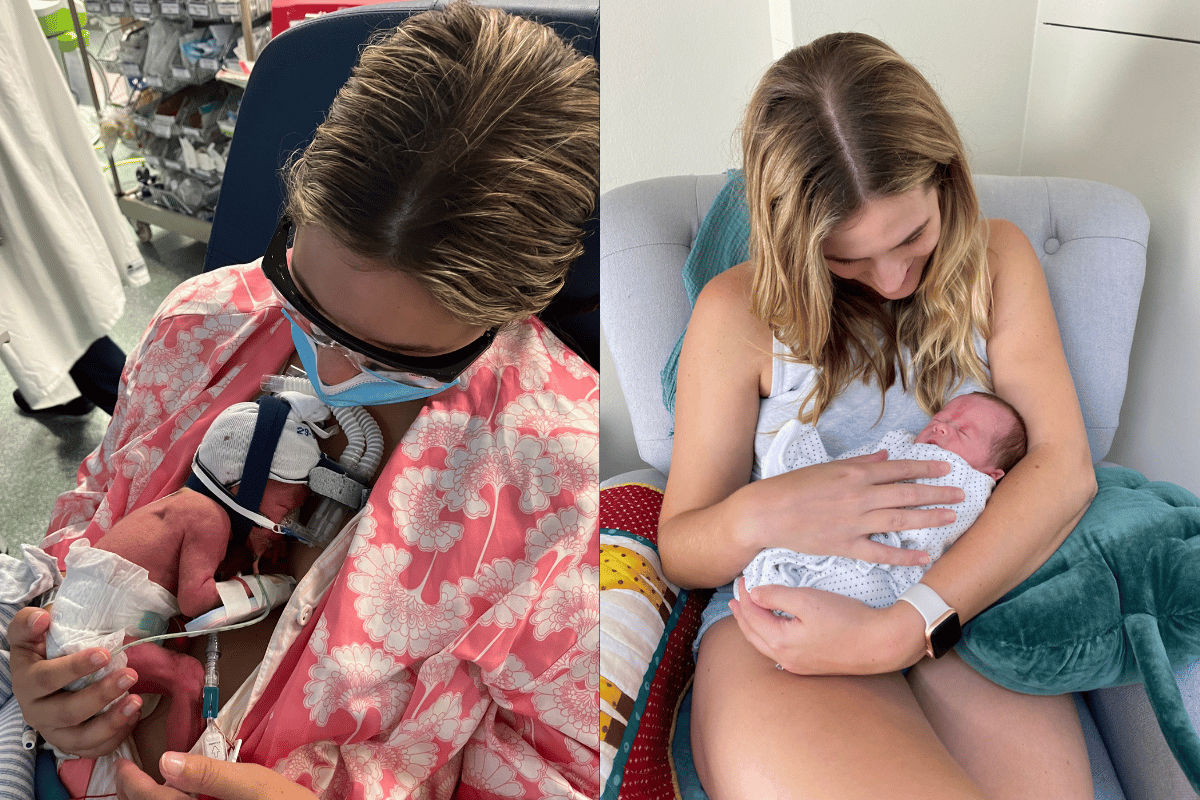
The sheer volume of advice pressed upon expectant mothers is, frankly, overwhelming. Not only is the tidal wave of information near-impossible to process, it’s also highly contradictory. What one Instagram sleep consultant swears by is exactly what your best friend’s IBCLC told her not to do.
But there’s one thing that everyone seems to agree on, and it’s dominating messaging from TikTok to midwives to group chats to hospitals: the hour of skin-to-skin contact after a baby is born – dubbed the “golden hour” – is absolutely critical for mum and baby’s health, bonding and wellbeing, and they should spend it uninterrupted unless absolutely necessary.
Experts go so far as to say that the golden hour improves breastfeeding success rates and is critical for mother and child bonding “even years down the road”. I have no reason to doubt the medical evidence, but even putting it aside, prioritising the “golden hour” just makes sense. What mother, having waiting months and months to meet her child, wants to be separated from them in those precious first moments?
Well, presumably, no mother.
But some don’t get a choice.
_(1).jpg?alt=media&token=e86bec1c-c0e1-40ee-8cc6-6f0b2af54e56) Image: Supplied.
Image: Supplied.
When my son was born eight weeks premature, I was in the lucky position of having some forewarning. I say “lucky”, like the days leading up to his birth weren’t some of the most frightening of my life, but I think having even a small bit of notice that my birth wouldn’t look the way I’d been anticipating helped me to process it later.
It was made very clear to me that there would be no “golden hour” in our case, or even a golden minute. We knew my son would need immediate admission to the NICU. What we didn’t know was how much additional intervention he’d need, and in particular, whether he’d need to be ventilated.
During my c-section, everything felt surreal in the most literal way. It didn’t feel real that this was the birth I’d been thinking about since he was conceived, because it didn’t look anything like it. It didn’t feel real that my baby was ready to come into the world, because frankly, he wasn’t yet. Even as our incredible anaesthesiologist talked me through the procedure, checking to make sure I could see my baby as he was pulled from inside me (I couldn’t, actually, but at that point it didn’t seem particularly important), it didn’t feel real.


.jpeg?alt=media&token=c695de63-b86b-4b25-a2c6-e8499a40a98c)
Top Comments